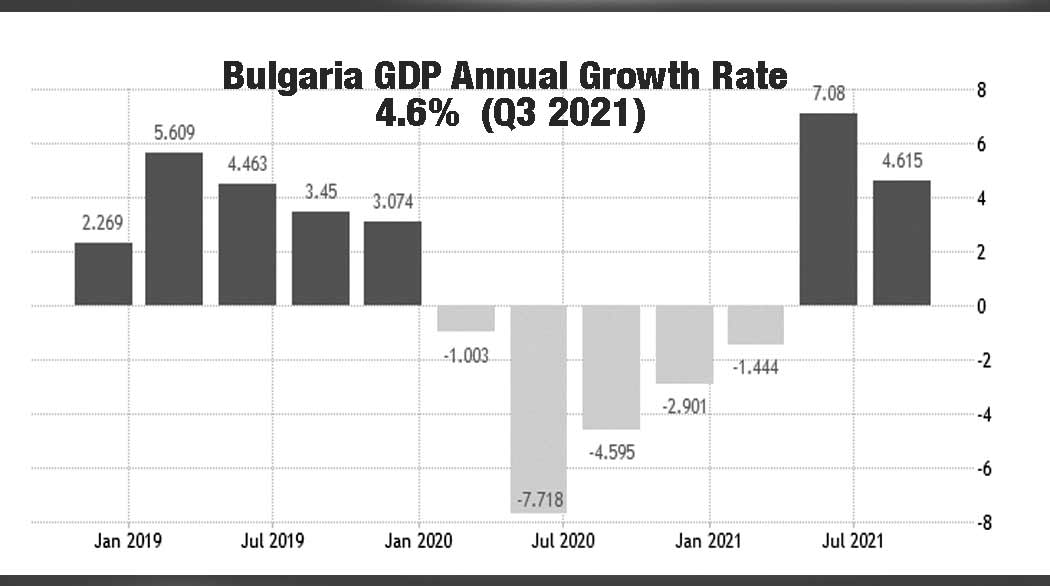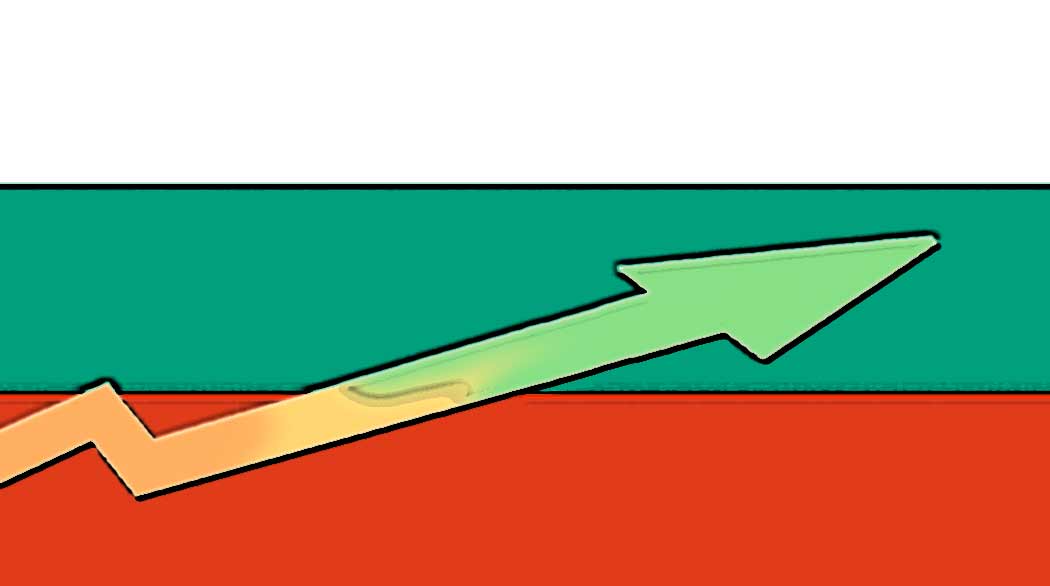Bulgaria’s economy is expected to advance 3.5% in 2022, Euler Hermes said on Wednesday (Jan. 5). The Paris-based credit insurance company lowered its September 2021 forecast by 0.3 percentage points.
The smooth economic recovery in Bulgaria will continue, with a possibility to return to its pre-crisis level by the end of this year, while analysts expect the country’s economy to expand by 4% in 2023.
According to the company the main risk for the Bulgarian economy is its strong export orientation, including tourism services, which makes it highly vulnerable to external turbulence. Another reason for delayed recovery could be continuing problems with the supply chain, which limit production in certain industries in the country.
“Although we expect a gradual recovery of exports, which will have a positive impact on the Bulgarian economy, with this serious dynamics and strong export dependence, businesses must be especially careful in relations with their partners, both in Bulgaria and abroad. Additional surprises can be expected due to inflation and rising energy and fuel prices globally” manager for Bulgaria at Euler Hermes, said in a press release.

After more than 7% year-on-year inflation growth in 2021, Euler Hermes expects it to peak in early 2022, and slow thereafter bringing average inflation for 2022 to around 2%. At the same time, wages in Bulgaria will grow faster than prices, with 9% growth expected in 2022 and 8% in 2023.
Although the extraordinary fiscal support measures during the COVID 19 crisis led to a budget deficit for two consecutive years, Euler Hermes experts expect public debt to stabilize at around 27% of GDP while gross external debt will gradually fall to less than 60% of GDP by 2023.
Gross external debt will increase from 61% of GDP in 2019 to 65% of GDP in 2020 and fall to less than 60% by 2023. Although this is still relatively high compared to the average of all emerging markets, Bulgaria is well-positioned with some of the best indicators among the 11 Member States of the EU from Central and Eastern Europe.
According to the report of Euler Hermes, Bulgaria enjoys EU membership, good international contacts, currency stability, long-term moderate fiscal policy, favorable external finances and a generally good business climate
However, experts warn of the weaknesses of the Bulgarian economy at the moment which include: Unsatisfactory progress in judicial reform and the fight against corruption, limited financial freedom, political instability and vulnerability of the economy to external turbulence due to the high level of export orientation.
The Bulgarian economy increased by 4.6% year-on-year in the third quarter of 2021. It was the second quarter of growth, after over a year of contraction.







